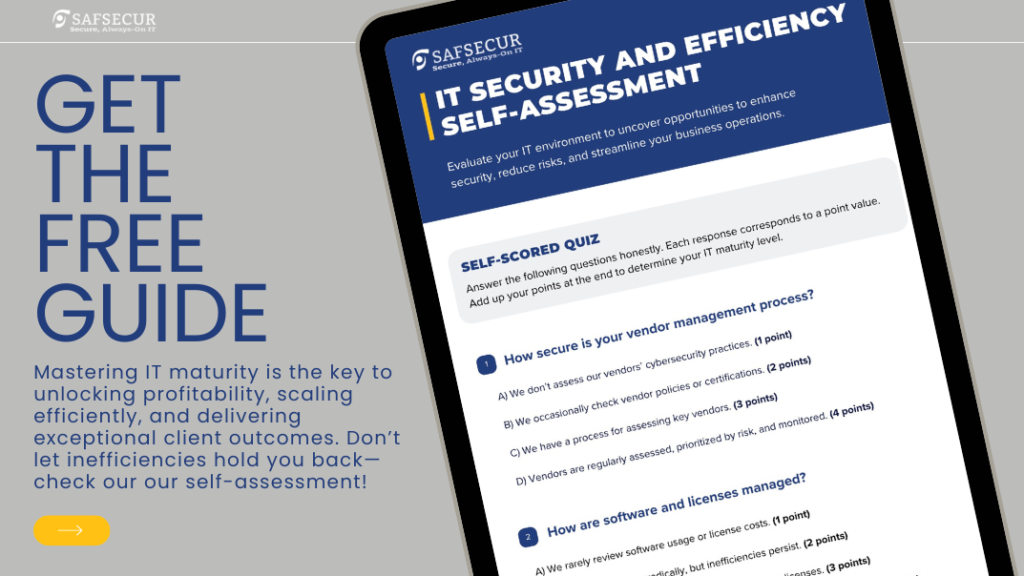Why DMARC, DKIM, and SPF Matter More Than Ever in 2025
It’s 2025, and email is still king when it comes to communication — both internally and externally. But while most businesses have moved on to cloud-based productivity platforms, embraced automation, and even dipped their toes into AI, far too many still treat email security like an afterthought. Unfortunately, that oversight is a gift to cybercriminals, and a growing liability for businesses that rely on email for sales, service, and day-to-day operations.
If your organization isn’t properly configured with DMARC, DKIM, and SPF, you’re not just at risk — you’re already exposed. These three protocols aren’t “nice to have” anymore — they’re essential for brand trust, data security, and deliverability. And if you’re marketing to customers, communicating with vendors, or sending invoices and client updates, your ability to land in the inbox (and not the spam folder) hinges on them.
What Are DMARC, DKIM, and SPF — and Why Should You Care?
Let’s break it down in human terms.
SPF (Sender Policy Framework) is like a guest list for your email domain. It tells mail servers which IP addresses are allowed to send emails on your behalf. Without it, anyone can spoof your domain and send messages that look like they’re coming from you — including phishing attempts targeting your clients.
DKIM (DomainKeys Identified Mail) is like a wax seal on your envelope. It cryptographically signs your emails so the receiving server can verify they haven’t been tampered with in transit. It also confirms that the sender really is who they say they are.
DMARC (Domain-based Message Authentication, Reporting, and Conformance) is the enforcer. It uses SPF and DKIM records to determine whether an email is legit — and then tells the receiving server what to do if it fails the test (e.g., quarantine it, reject it, or do nothing). It also gives you visibility via reports, so you know who’s using your domain and whether unauthorized parties are trying to spoof it.
Together, these three records are your first — and sometimes only — line of defense against spoofing, phishing, impersonation, and email-based breaches.

For Clients, Email Authenticity = Trust
If you’re in a professional services business — whether IT, finance, healthcare, legal, or even construction — your clients expect the emails you send them to be legitimate. But they don’t always know how to tell the difference between a real invoice and a cleverly disguised scam. That’s where your domain reputation matters.
When your emails are properly authenticated with DMARC, DKIM, and SPF, you dramatically reduce the likelihood of spoofed emails reaching your clients’ inboxes. You also increase your chances of actually landing in those inboxes instead of getting flagged or silently dropped by spam filters. This is especially important for automated workflows, invoice reminders, password reset emails, or anything your business sends at scale.
In short: properly configured email records help protect your clients, your brand, and your bottom line.
For Your Business, It’s About Deliverability — and Credibility
Think about the cost of one missed email — a quote not seen, an appointment not confirmed, a lead that never replied because the email never made it. Multiply that by weeks or months of poor deliverability, and the damage becomes very real. And that’s without even factoring in the reputational risk of your domain being spoofed for phishing attacks.
In 2025, marketing platforms and email services have tightened their policies. Gmail, Microsoft, Yahoo, and others now require authenticated emails to maintain deliverability. Domains without DMARC enforcement are flagged. IPs that aren’t listed in SPF records are blocked. Messages that fail DKIM checks are dropped silently — no bounce, no warning.
At SafSecur, we’ve seen this firsthand. Business owners come to us with perfectly written campaigns that never reached their audience, or with angry clients who received fake invoices from lookalike domains. These issues are 100% preventable — but only if you’ve got the right protections in place.
What Should You Do Now?
If you’re unsure whether your domain is properly authenticated, now is the time to check. The good news? This isn’t a massive infrastructure overhaul — it’s a manageable update with major impact. At SafSecur, we help businesses across Pittsburgh and beyond audit their domain health, configure their DNS records correctly, and monitor for any unauthorized use.
Setting up DMARC, DKIM, and SPF isn’t just about cybersecurity — it’s about professionalism, deliverability, and trust. Whether you’re sending sales emails, communicating with clients, or running targeted marketing campaigns, these records make sure your message gets through — and that it’s actually coming from you.

